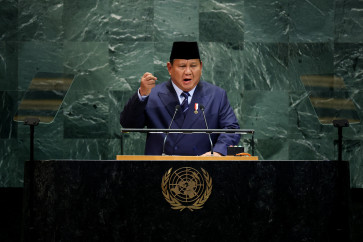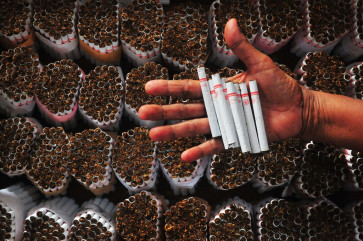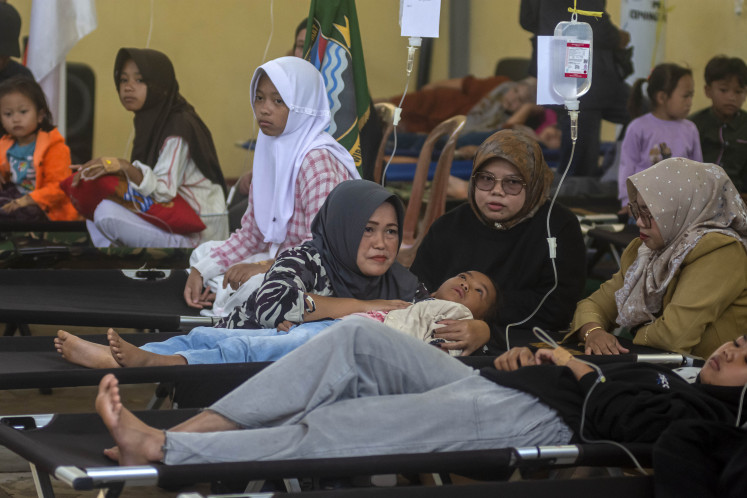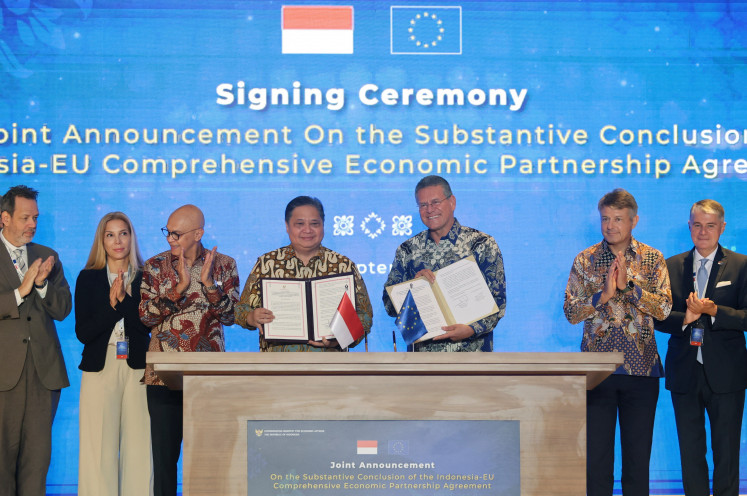Popular Reads
Top Results
Can't find what you're looking for?
View all search resultsPopular Reads
Top Results
Can't find what you're looking for?
View all search resultsCancun talks make modest progress
One of the celebrated outcomes from the Cancun climate talks has been the recovery of trust among delegates
Change text size
Gift Premium Articles
to Anyone
O
ne of the celebrated outcomes from the Cancun climate talks has been the recovery of trust among delegates.
After international trust in climate negotiations faded following disappointing results in Copenhagen last year, India’s representation has now said that God is working in Mexico.
Environment ministers from around the world stood in applause lasting some five minutes as Conference of Parties (COP) president Patricia Espinosa introduced new texts for adoption by delegates.
“Gracias, gracias and gracias,” said Espinosa as she bowed and thanked the floor for the applause given by ministers from 194 countries and hundreds of delegates standing in two giant meeting rooms on Friday evening.
Espinosa proceeded to provide two hours for negotiators to study the text of decisions made after the conference failed to bridge differences in all areas of the climate talks. The COP president offered two draft decisions, the first on long-term cooperative action (LCA) and the second on the Kyoto Protocol.
The two papers were adopted Saturday morning, hours after the Friday closing schedule, despite protests from Bolivia. Ministers and negotiators spent 24 hours on Thursday trying unsuccessfully to forge a deal, forcing Espinosa to issue her own draft papers.
The first paper elaborated on issues regarding global emission cuts by 2050, with both developed and developing countries required to commit to emission cut targets. It also detailed issues of climate mitigation, adaptation, technology transfer and reducing emissions from deforestation and forest degradation (REDD+).
The decision on Kyoto Protocol, however, still put forth two options on whether or not to amend commitments to reducing emissions in the post-2012 era.
The Kyoto Protocol currently binds 37 rich nations, excluding the world’s second largest emitter, the US, to cut emissions by 5 percent until 2012. It is expected that a second commitment would be made during next year’s climate talks in Durban, South Africa, at the latest.
The second commitment period has been among the hottest issues during the two-week conference, with Japan and Canada rejecting new emission cut targets if major developing countries like China, India, Brazil and Indonesia did not set binding targets on their own emission reductions.
Indonesia has also rejected a demand from Japan to support the “killing of Kyoto” by asking Jakarta to make a binding target.
The same rejections were made by China, Brazil and India, all of which asked industrialized nations not to dismiss their past contributions to polluting the planet.
The conference room atmosphere experienced its own warming as developing countries were accused of failing to fulfill their responsibilities in curbing emissions.
“The text we have before us really seems to be the best we could achieve at this point in a long process,” Espinosa told the conference.
The process at the Cancun climate talks had been transparent and inclusive and listened to all, she said.
“It is good news for the future of climate talks...,” said Indonesia’s delegation chief Rachmat Witoelar, who was appointed by Espinosa to help avert deadlock by lobbying some 50 countries within one and
a half days.
“The atmosphere has been very good since the beginning of the informal plenary session.”










